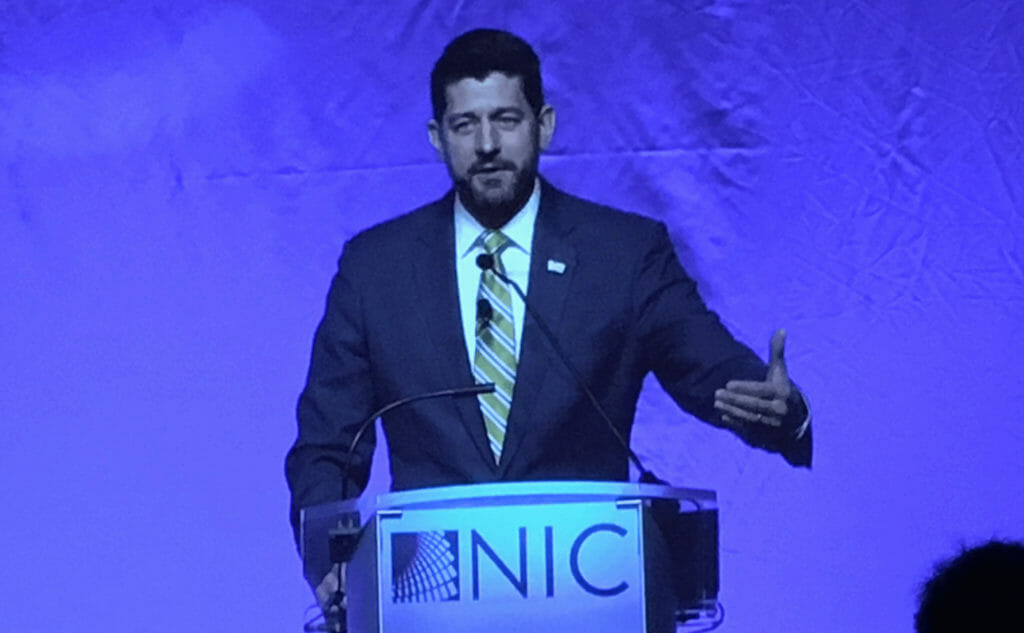
SAN DIEGO — The Medicaid and immigration programs will be reformed, and senior living and long-term care providers can help shape the outcome, former Speaker of the House Paul Ryan (R-WI) said during Thursday’s opening general session of the National Investment Center for Seniors Housing & Care’s 2019 Spring Conference.
It was Ryan’s first speech since leaving Congress six weeks ago.
“I would argue that if we would solve just two of those issues — immigration, entitlements — we’re going to have another great American century,” he said. “Here is the challenge: These problems are solvable only if our politics will allow for it. And that is my greatest concern: The state of our politics.”
Provider groups will need to keep educating members of Congress about the issues that are important to them, Ryan said.
As Congress considered healthcare reform in 2017, he noted, advocacy by Direct Supply founder and CEO Bob Hillis and the American Health Care Association / National Center for Assisted Living’s president and CEO, Mark Parkinson, and senior vice president for government affairs, Clif Porter, helped him and others understand how a proposed Medicaid block grant program would affect older adults. For that reason, Ryan said, the program that was fashioned had a separate Aged and Disabled block grant, which was “more generous” due to the differing cost structure needed for the population.
A reform bill subsequently passed the House but fell one vote short in the Senate.
“You have to make sure that those of us who made sure that Aged and Disabled were treated separately continue to do so in the days to come,” Ryan said.
Immigration reform, which could address workforce issues in seniors housing and care and other industries, also is “going to get done because it has to get done, but I can tell you, I highly doubt it’s going to get done in the next two years,” Ryan said.
One solution for the country, he said, is to move to an employment-based system for visas, whereby legal immigrants are welcomed based on needs of the U.S. economy and the sectors that have labor shortages rather than keeping the current family-based system.
“You need RNs? You need CNAs? You need doctors? You need skilled workers? You need agricultural workers? That’s what the visas should be given for while keeping nuclear families intact,” Ryan said.
Again, he called for advocacy. “For those of you who are so stressed about labor shortages, you’ve got to keep pushing on members of Congress,” Ryan said. “You’ve got to keep talking about this. A solution will happen.”
In the meantime, Ryan encouraged people to look at the Strengthening Career and Technical Education for the 21st Century Act, which was designed to consolidate 47 job training programs in nine government agencies and send control back to states. The act was passed into law last summer.
One program, Ryan said, allows high school juniors and seniors to take CNA classes in a community college or their high school as part of the high school curriculum. Would-be employers typically pay for the second year of the program on the condition that the student works for them after completing the program.
“So you have 19-year-olds coming out of school with a CNA degree or moving on to their RN degree,” he said, encouraging providers to work with schools to develop programs.
Ryan predicted that immigration issues will be “fixed” incrementally within three or four years via several bills individually addressing guest workers, security, undocumented immigrants and visa system reform — if those in Congress and the president make it a goal.
Thursday’s agenda at the NIC conference also featured additional educational sessions and a lunchtime talk by healthcare futurist and author Ian Morrison. The conference ends Friday.



